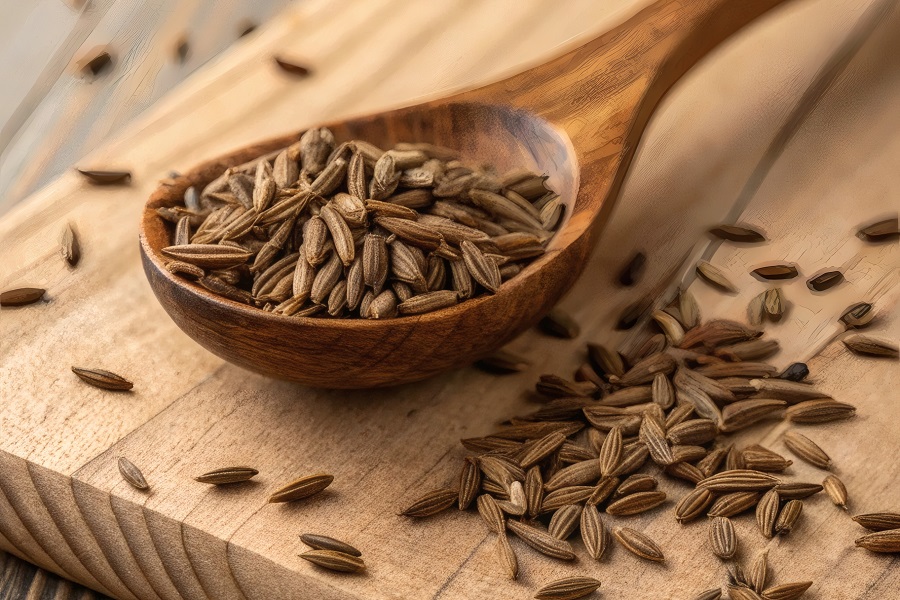A common kitchen spice may yield a new class of cannabidiol (CBD)-like medicines with powerful seizure-reducing effects, according to a new study. Caraway seeds, also called meridian fennel, could produce safer, more affordable, and more effective treatments for childhood seizure disorders than existing frontline therapies.
The researchers discovered they could enhance CBD’s most favorable therapeutic properties by changing the shape of the seeds’ main chemical component.
“Advancing this new class of therapeutics holds significant promise for patients who have exhausted existing treatment options, whether due to debilitating side effects or a lack of response to currently available therapies,” says study co-author Adriana Carrillo, a UNLV senior double majoring in neuroscience and public health.
“It is encouraging to help build the foundation for future treatment options that could one day offer families safer and more effective choices.”
Creating a new library of CBD-like medicines
The study is one of the first to explore the tolerability and efficacy of carvone-derived compounds, naturally found in the essential oils of plants, including caraway, dill, and spearmint.
The authors have since published a carvone-based therapeutic library of “CBD-like” medicines created without the psychoactive compound in cannabis, tetrahydrocannabinol (THC).
This marks a critical milestone for research behind new CBD-inspired treatments, which is promising for scientists developing therapies that sidestep regulatory bottlenecks that restrict most cannabis-derived medications.
“These fully synthetic compounds, made from a safe plant extract and free of THC, not only prevented seizures and reduced seizure-related deaths but also promoted healthier brain cell development — without the sedative side effects of current treatments,” says Dustin Hines, study co-author and professor of neuroscience at UNLV.
“Childhood seizure disorders are often resistant to available drugs, and both the seizures and the current frontline therapies can severely affect brain development, cognition, and quality of life, making the discovery especially promising.”
Promising preclinical findings
The study found that caraway-derived therapies packed a greater punch in stopping seizures in preclinical trials.
This came without the negative brain effects commonly associated with the long-term use of benzodiazepines, the most widely prescribed class of anticonvulsant drugs for treating developmental epilepsy syndromes.
CBD is among the more than 500 chemical compounds in the cannabis plant. Over the years, it has steadily gained mainstream acceptance for its non-intoxicating pharmacologic profile.
It has also demonstrated effectiveness in treating anxiety, multiple sclerosis, certain forms of epilepsy, and other neurological and inflammatory conditions.
Presently, Epidiolex is the only FDA-approved CBD medication for treating seizures in patients as young as a year old. However, it is only prescribed to those with certain severe forms of epilepsy, while having greater barriers to manufacturing, insurance regulation, and pharmacy distribution than typical prescriptions, because it is extracted from cannabis.
CBD-like caraway molecules show promising preclinical effects, but the UNLV scientists say continued research will be needed to advance future human trials and regulatory approval.
For now, snacking on caraway for its seizure-busting benefits won’t be effective: “Caraway seeds don’t contain CBD. They just contain the scaffold to create it,” notes Carrillo.
The findings were published in the Nature journal Neuropsychopharmacology.

